Peat Free Gardening Tricks: Garden Expert Nick Hamilton Explains
 Lee Burkhill: Award Winning Designer & BBC 1's Garden Rescue Presenters Official Blog
Lee Burkhill: Award Winning Designer & BBC 1's Garden Rescue Presenters Official Blog

Sustainable, peat and chemical-free gardening is nothing new for the Barnsdale Gardens team, who have been growing in a peat-free compost for over 30 years and have had great success with the wide range of plants using this peat-free medium. Geoff Hamilton, was a pioneer in organic gardening using peat and chemical-free techniques and the longest-serving presenter on BBC's Gardeners' World.
Today I speak to his son, Nick Hamilton, to help share his peat-free gardening tips with you Ninjas, so we can better look after the environment and make the switch to more environmentally friendly growing mediums.
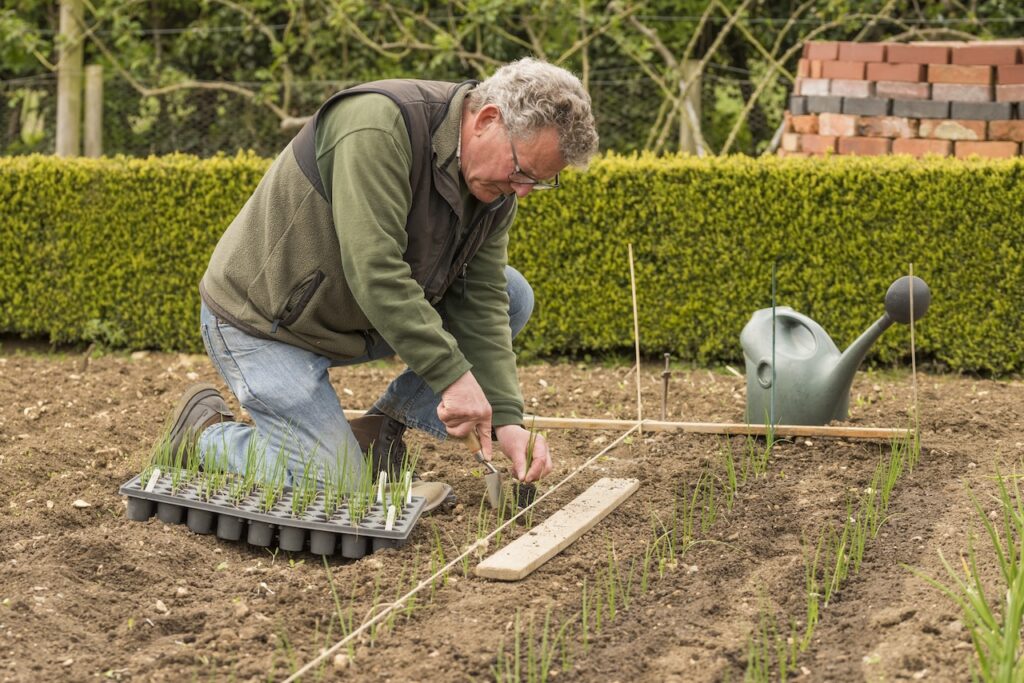
The gardens at Barnsdale remain an outstanding example of these organic 'peat-free' principles today. With decades of hands-on experience when it comes to growing plants without peat.
Nick's knowledge on this subject knows no bounds, so here are some handy peat-free tips to get you going and growing!
Let's start with the top tips on how you, the ethical gardener, can switch away from peat-based composts, which are harvested from wetland bogs and take thousands of years to create.
We all know that peat is not sustainable and extracting it damages the environment, but what does the new gardener need to be aware of when using alternative composts?
Here are Nicks headlines for new peat free gardeners:
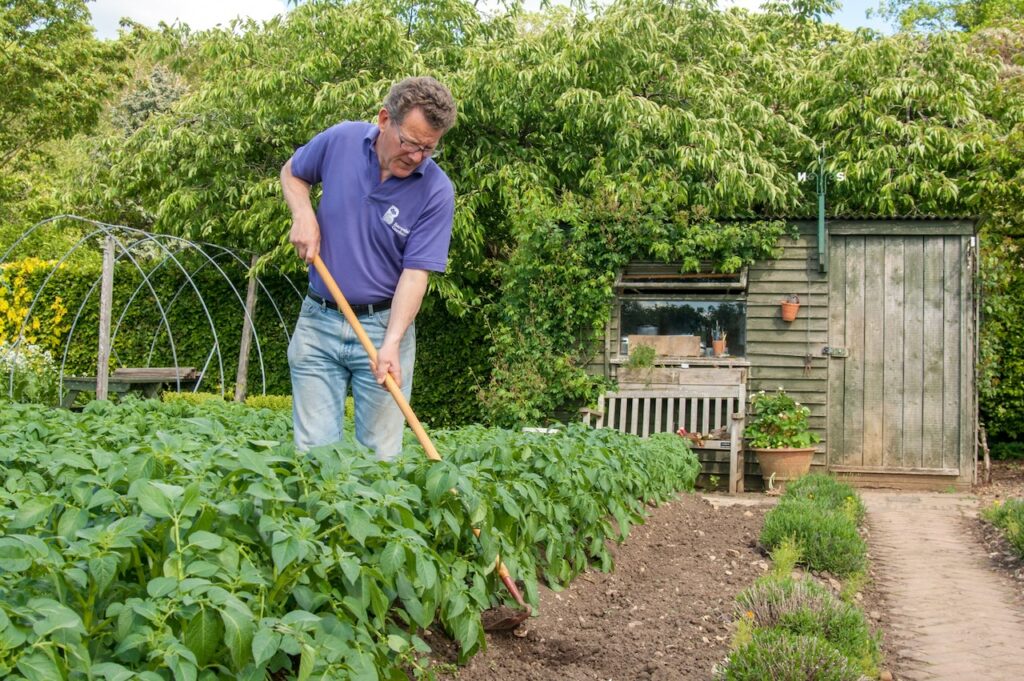
When sowing veg, Nick says that he sometimes does not add any other medium to the compost if it is a good quality compost. Buying the right compost for the job is essential, so always buy seed/cuttings (also called propagation) compost when seed sowing or taking cuttings and potting compost when potting on. This ensures that there is the right level of fertiliser in each compost for the job.
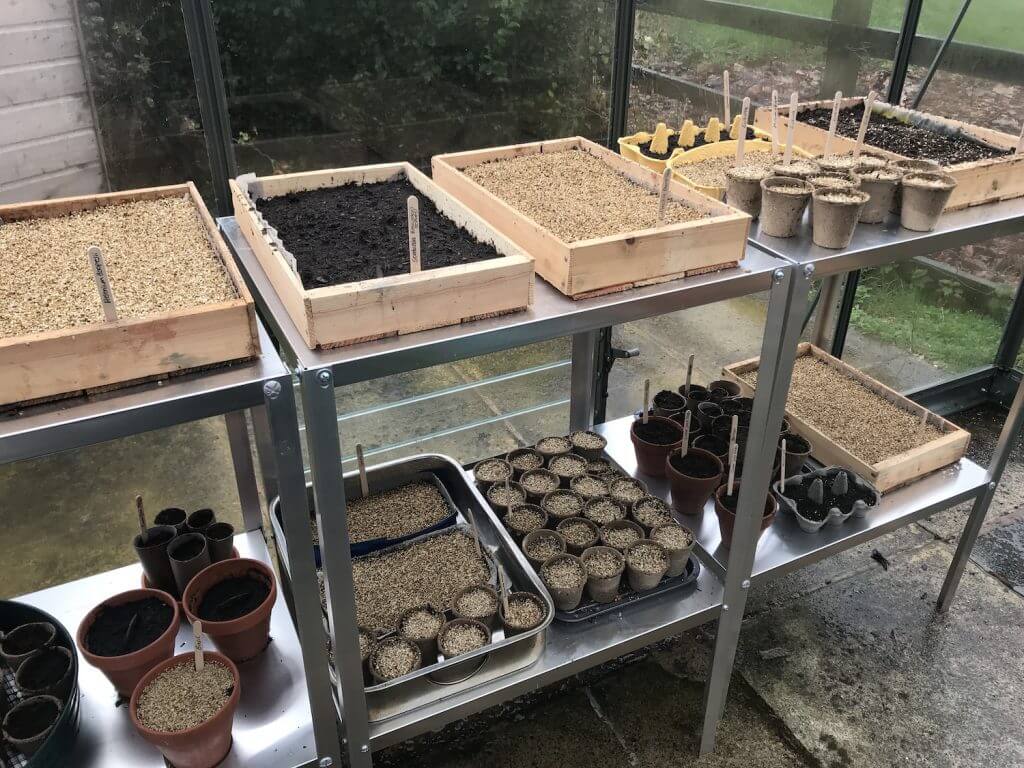
It could be worth adding soil or garden compost to the mix when potting more long-term. Beware that if you use potting compost because you have it for seed sowing, then the high rate of fertiliser is very likely to kill your seedlings. He has found that even when using the right peat-free compost for the job, there is likely to be the need for supplementary feeding, depending on how long they are in the compost.
Did you know that you can take my course and learn how to become a Garden Ninja yourself? Click here for details
The big difference between a peat-free and peat compost is that the peat-free is made from material that is still rotting down, so it uses valuable nitrogen, and this may well need topping up. The biggest draw back with peat free is you will need to provide additional plant food for hungry plants like vegetables and roses.
If you're uncertain as to wether plants need feed you can use visual clues to guide you. Slight yellowing of the leaves of seedlings and potted plants is a sure sign. The team mostly use a homemade nettle feed for supplementing any lack of nitrogen, although they also have used a seaweed feed too.
Nick and his team often use a 50:50 mix of peat-free compost and composted leaf mould for sowing. The leaf mould compost has such a good selection of different leaves mixed into it, and this seems to produce a compost which has a really good structure. As this is such a valuable addition, it makes sense to not just use it for borders but also add it to potting composts.
Leaf mould has an excellent level of trace elements, so it will be feeding you seedlings and plants with nutrients that may be missing from the additional feeds you apply.
When potting plants into containers, it is beneficial to add homemade compost/leaf mould to the mix, giving the compost body a better long-term rooting medium. Even with all this, supplementary feeding may be necessary. Yellowing leaves, for example, indicate that your plants need a little extra boost of nitrogen (n). Homemade seaweed or nettle feeds are perfect for nitrogen deficiencies, such as yellow leaves.
Beware that peat-free multi-purpose compost can have low fertiliser levels. At Barnsdale, they add pelleted chicken manure when potting on seedlings and veg such as tomatoes, peppers or aubergines into their final containers.
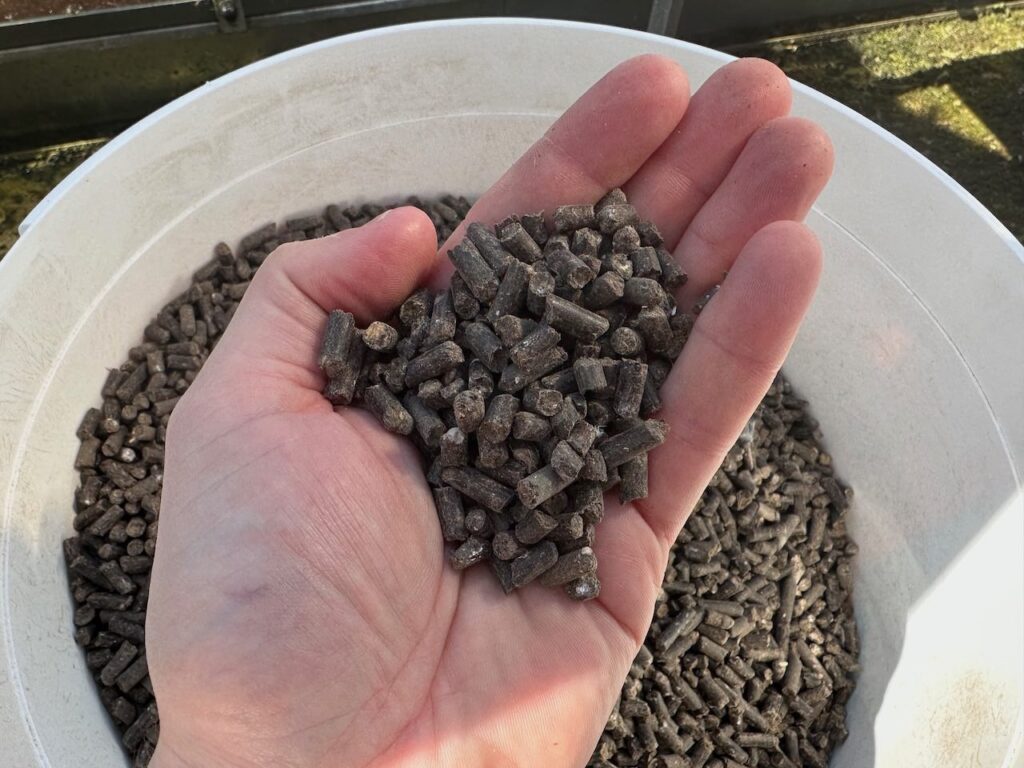
Chicken manure is great for plants because it is rich in organic nutrients. It's an excellent source of nitrogen, one of the most important nutrients needed for healthy leaf growth in all plants. If using a multi-purpose compost for potting up ornamental plants, then Nick recommends using a soil-based peat-free compost as this gives them a much better-rooting medium to grow into.
Be aware that different peat-free composts will hold water differently, and some will also be quite free-draining, so it is worth making a note of this as you continue learning along your peat-free journey. The compost Nick uses is generally wood-based, and this can look very dry initially on the surface, but it will be wet below. You do not water like a peat-based compost as they are totally different mediums. In dry spells, be prepared to water frequently. My suggestion when asked how often to water it is always, if in doubt, then do water.
Nick explained that "your index finger is a wonderful thing when it comes to seeing if a plant needs water. Pop it into the soil. If it comes out damp, they're okay, but dry as a bone means the plants need watering".
As the peat-free compost and the plant put in it are both using up nitrogen, sometimes the leaves on some plants can begin to yellow sooner than expected. If this is the case, foliar feed can help as it is taken up by a plant better and, therefore rebalances the nutrient level in the plant at a faster rate, ensuring the leaves return to their normal green quickly.
The Barnsdale team work as organically as possible using natural pest control and never use pesticides. There are many ways to achieve this, but high on the list is to attract wildlife into your garden, such as hedgehogs, birds, frogs, ladybirds and hoverflies to feed on your pests. You can also use Nematodes and environmentally friendly washing up liquid. The team take the view that working with nature is much more preferable than working against it, which is why peat isn't used.
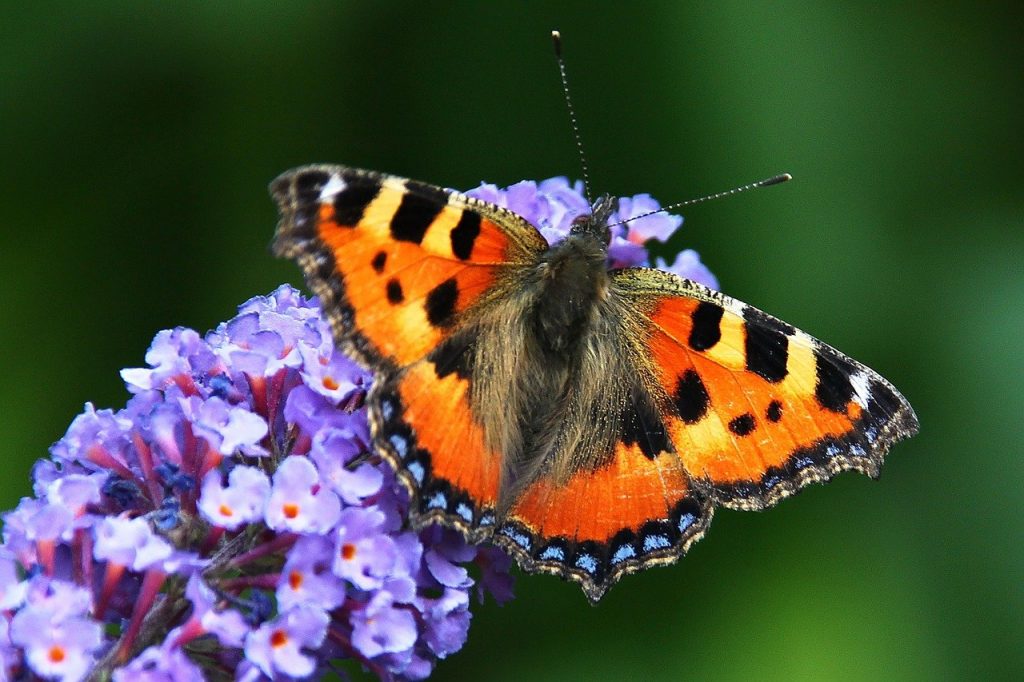
When I asked Nick why he thought the battle to ditch peat has taken at least 30 years so far one of his explanations is that "gardeners are fearful enough of ensuring what they do works, when they try new things it can be hard to contend with in case they get different results".
Nick also believes that because peat works so well as a growing media, the industry hasn't really had much competition, and that gardeners have become so comfortable with peat that it's made it difficult to change that.
Additionally, change in horticulture can be slow, as knowledge is built up over a generation, not overnight. But looking at Nick and his father's legacy, there's no real argument for the continued destruction of the environment just for 'comfort'. We, as horticulturalists, need to embrace change to help become more ethical, organic-minded gardeners.
With climate change comes irregular weather patterns, and these could be a reason for looking at alternatives in the types of plants that we grow. With the warmer, but also often damper, UK summers now, fungal diseases can become a problem. Damp weather encourages diseases such as potato and tomato blight, mildew and grey mould. Over the years, the breeding of disease-resistant varieties has resulted in a whole host of superb choices when it comes to veg and fruit.
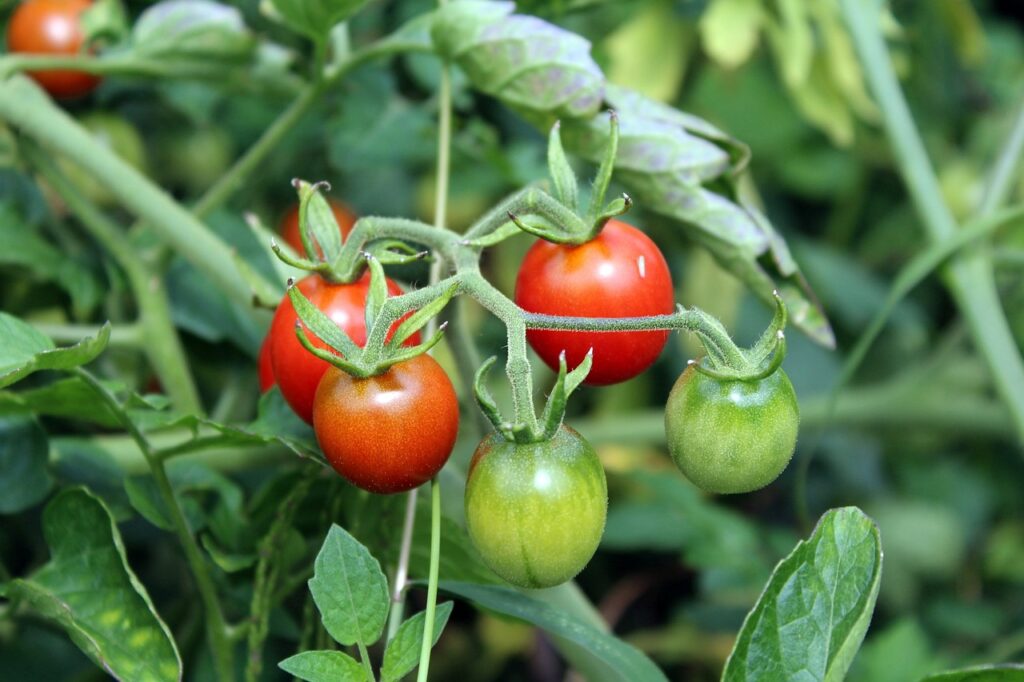
Choosing a blight-resistant tomato variety, for example, also has the added benefit of allowing more successful outdoor growing, when you possibly only grew tomatoes inside a greenhouse before. If at first, you don't succeed, then try something else!
Nick Hamilton runs Barnsdale Gardens in Rutland, in the East Midlands, which has been enthralling garden fans since 1983, when Geoff Hamilton, the much-loved presenter of BBC Gardeners World, bought a Victorian farmhouse with over 8 acres of land with which to create a garden. Nick, Geoff's son now runs, designs and manages the garden.
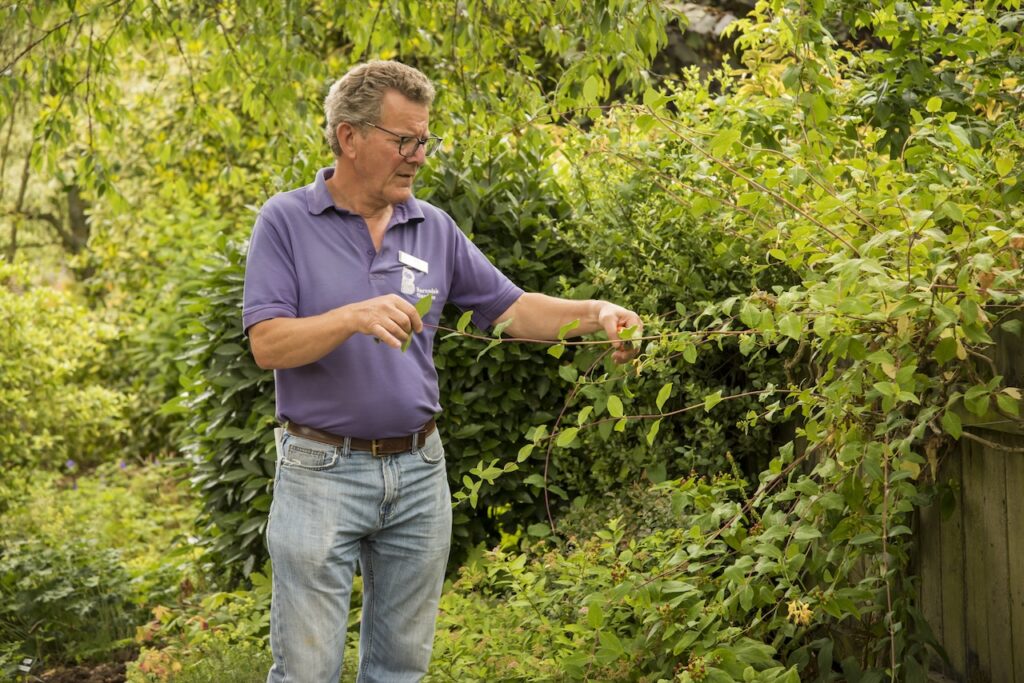
Often described as 'a theme park for gardeners', Barnsdale Gardens is open all year round (only closed on Christmas Eve, Christmas Day and Boxing Day), also offering visitors the chance to enjoy delicious food and drinks at the Helenium Tea Room daily.
For more information about Barnsdale Gardens, go to www.barnsdalegardens.co.uk.
Nick's main piece of advice about growing in a peat-free compost is not to wait until you are forced to use it, go out now and buy some so that you have a chance to experiment before you have no other option. As with anything new, it can take time to find the best solution.
Nick spent many months trialling different mixed ratios of ingredients and fertilisers for the Nursery. For the vegetables, it has been a little less precise and involved, but the Barnsdale team still monitor and runs trials on the rates of organic fertiliser and any other additives.
The main point is, don't just try one compost, and if it doesn't work, just give up try others. Don’t be afraid of failure; initially, there will be some trial and error, as with anything new, it can take time to find the best solution!
Now that you Ninjas know how to make the most of peat-free gardening, what is stopping you from championing the changes in your own garden? I would love to hear from you below or on the Garden Ninja forum!
Make sure you visit my Youtube channel for more gardening guides. You can also check out my Tweet, Facebook or Instagram for more garden help and tips!
Happy gardening!
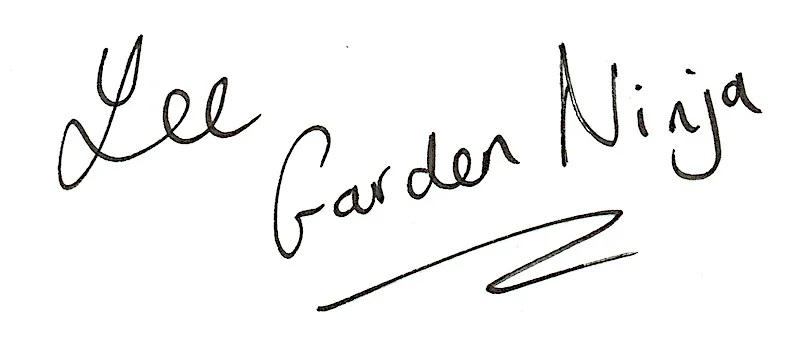

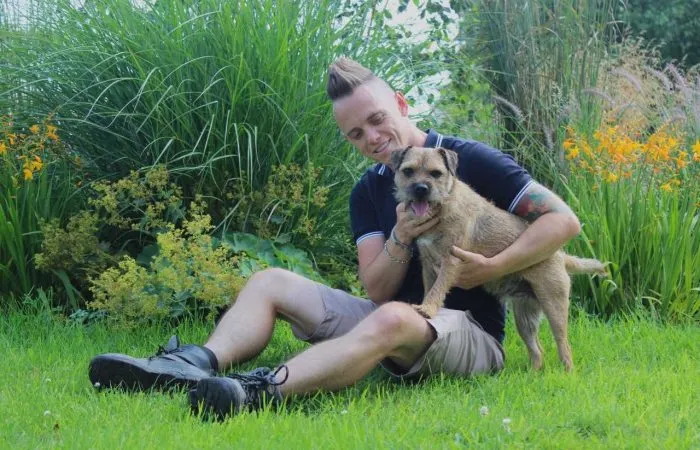
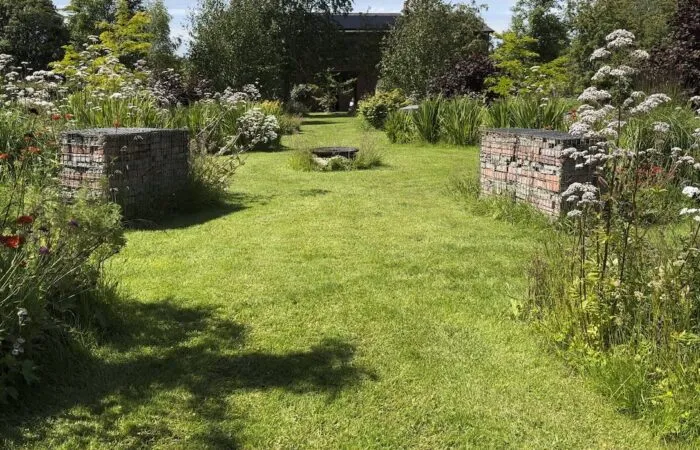
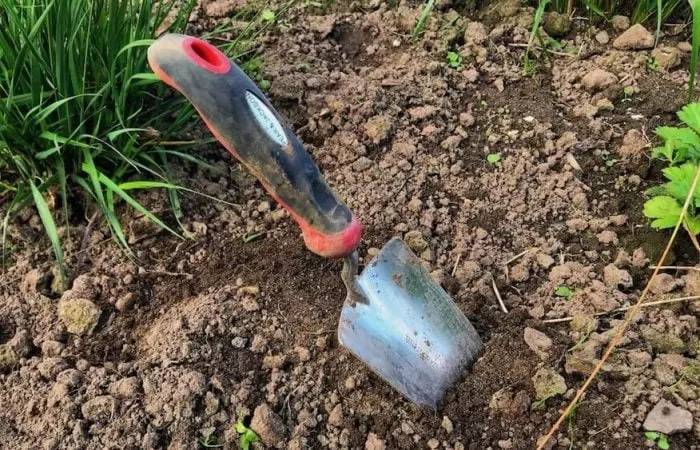
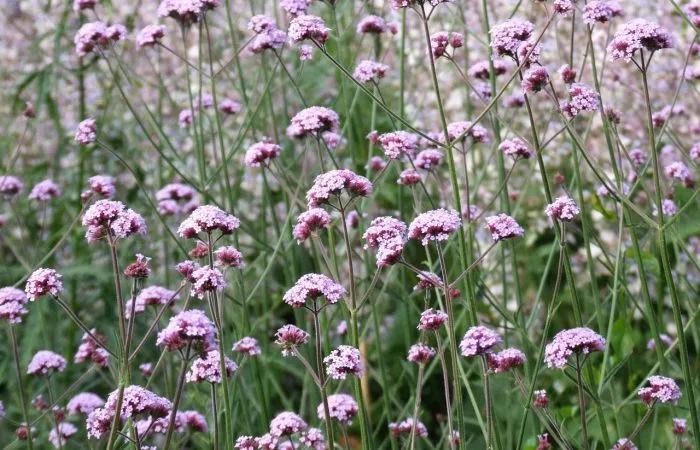
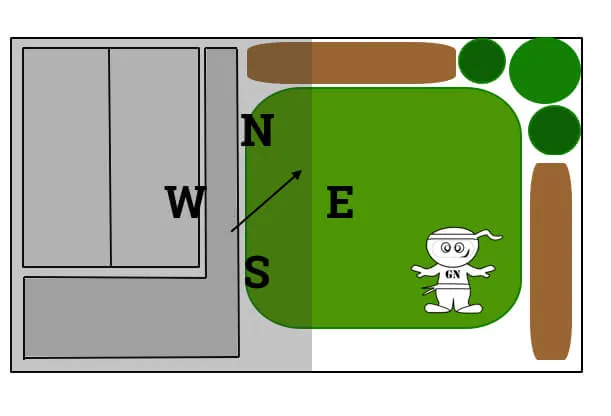
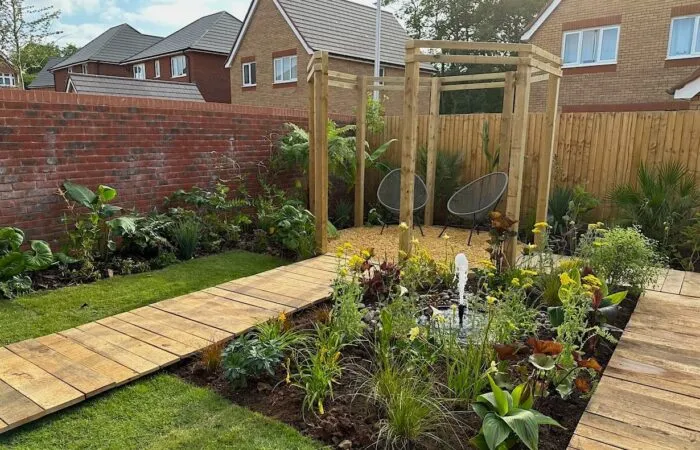
JOIN THE NINJAS
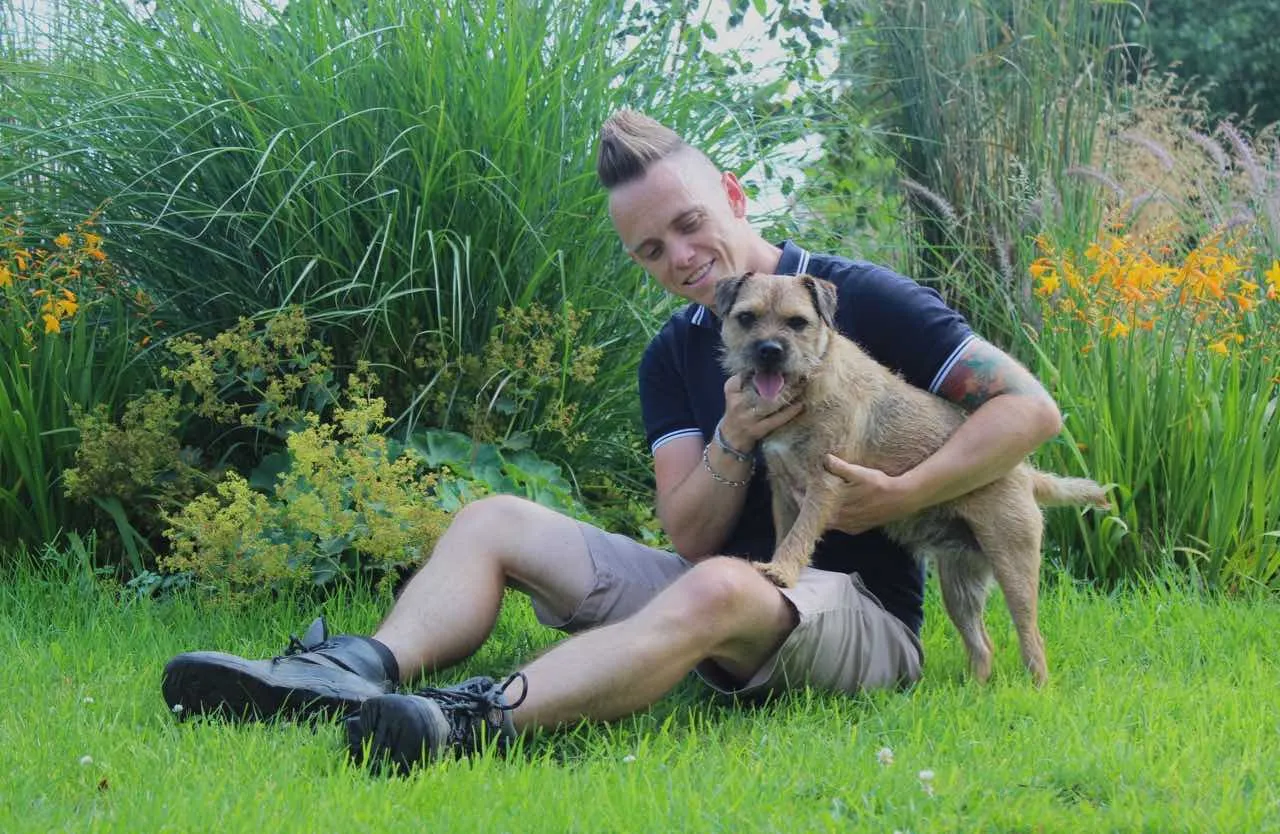
Be the first in line for new Guides, Discount codes and Offers